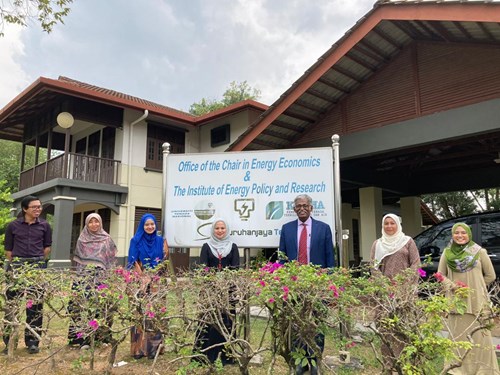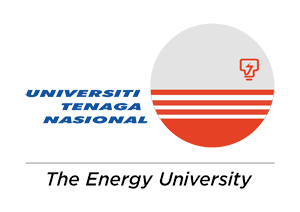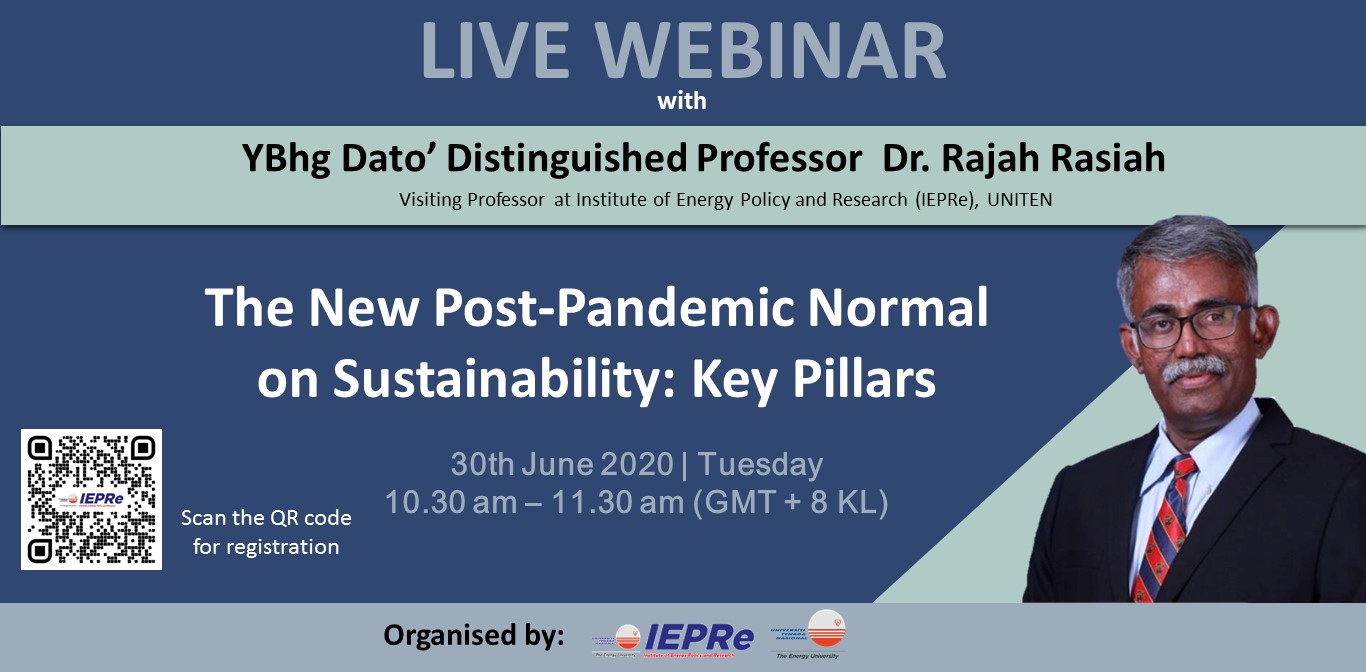Live Webinar: The New Post-Pandemic Normal on Sustainability: Key Pillars
Published on Tuesday, June 23, 2020
On June, 30th, Institute of Energy Policy and Research (IEPRe), Universiti Tenaga Nasional (UNITEN) has organized an hour-long live webinar session entitled ‘The New Post-Pandemic Normal on Sustainability: Key Pillars’. The speaker of this webinar is YBhg Distinguished Professor Dato’ Dr. Rajah Rasiah, a Professor of Economics at the Asia Europe Institute (AEI) at University of Malaya. He is also currently a Visiting Professor at IEPRe, UNITEN.
The live event was moderated by Dr. Zeittey Karmilla Kaman from IEPRe. The webinar commenced at 10.30 a.m. with a brief overview of the statutory functions of IEPRe and the introduction of the speaker, YBhg Distinguished Professor Dato’ Dr. Rajah Rasiah.
Professor Dato’ Dr. Rajah delivered an intriguing insight on how countries of varying levels of economic growth and capacity pursue Sustainable Development Goals upon embracing the new norm. The comparable progresses of these countries were conveyed according to four critical pillars, namely (i) material growth, (ii) ecological and environmental balance, (iii) health and (iv) socioeconomic equality. The countries being compared were Malaysia, China, Indonesia, Vietnam, South Korea and the United States.
The speaker led off the webinar by addressing the challenges of pursuing Sustainable Development Goals while confronting crisis after crisis. Governments across the globe were operating in a context of radical uncertainty, and faced with complex trade-offs given the health, economic and social challenges the pandemic created. The Covid-19 pandemic emphasises the need to strike a balance between the four pillars with strong connectivity and coordination between them.
Over 60 participants took part in the live webinar. The organizers engaged the attendees to send in questions while the webinar was in progress. Among salient questions raised by the attendees include
1. How would the government address the critical issue of 800,000 new unemployed workers post-COVID 19 (by October 2020), in particular to those in the bottom 40 group?
2. How to sustainably kickback the economy post-COVID-19 pandemic while delivering win-win outcomes to different parties and their counterparts?
3. How does COVID-19 pandemic influence Government’s energy efficiency initiatives given decision on energy consumption is largely influenced by economic factors?
The speaker uses proxy data to stand the measurements of development progress of the four key pillars. As such, GDP per capita measured the material growth while renewable energy in total energy consumption gauged the ecological and environmental balance. Hospital beds per 1000 people determined the health progress and Gini coefficient evaluated the socioeconomic equality. The speaker also demonstrated the links between material growth, i.e. GDP per capita and (i) ecological and environmental balance, (ii) health and (iii) socioeconomic equality respectively. The relationships of material growth, as the first pillar with the remaining three pillars were highly heterogenous across countries. The speaker concludes the lecture with highlights of significant implications of the pandemic especially on the four key pillars across countries, the importance of reliable crisis management and better policy responses.
 The slide for this webinar can be downloaded here
The slide for this webinar can be downloaded here


